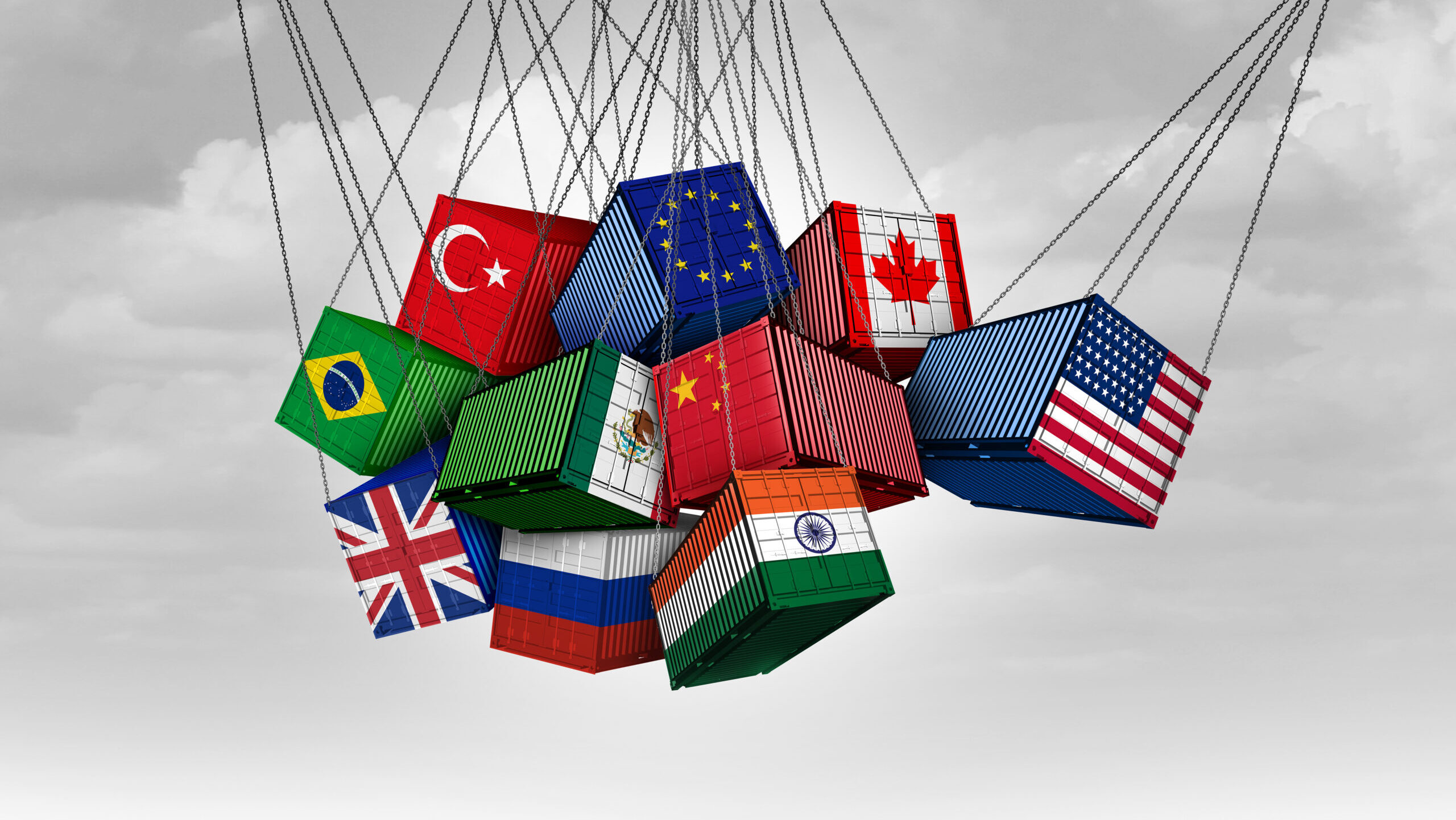|
Getting your Trinity Audio player ready...
|
Alabama voters overwhelmingly backed Donald Trump in the 2024 presidential election, and the results were decisive. But now, with sweeping tariffs looming, many of those same voters are growing uneasy — and rightfully so.
We should all want every administration to succeed. We should want Congress to succeed. Because when they do, the country succeeds. That used to be a common belief — an unspoken agreement that regardless of party, we were all pulling for the same flag. But somewhere along the way, that sense of shared purpose got lost. Now, too many people believe they only win if the other party loses.
But the unease is not without reason. President Trump’s latest trade moves have rattled global markets, triggered retaliation from foreign governments and sparked sell-offs — as several Alabama residents expressed in recent conversations. He claims tariffs will bring jobs back to the U.S., raise wages, curb drug trafficking and migration, and fund tax cuts — goals economists say are often contradictory and, in some cases, mutually exclusive.
What does this mean for Alabama?
Even some of Trump’s die-hard supporters are starting to voice private concerns, such as, “I hope he knows what he’s doing,” or, “Maybe it’s just a bluff that pays off in the long run.” But for many Alabama families — especially those already struggling to make ends meet — this isn’t a moment for political poker. These tariffs threaten real harm — not theoretical pain, but actual dollars and cents pulled straight from kitchen tables across this state.
Our senior U.S. senator, Tommy Tuberville — a very wealthy man well insulated from rising prices — recently dismissed the looming costs with a flippant, “No pain, no gain.” But when Alabama voters cast their ballots, did they vote for pain? Or did they believe the economy would improve?
Let’s be clear about what’s at stake.
These tariffs will cause grocery bills to rise quickly — and sharply. Seafood, of which 85 percent is imported, could jump ten to twenty percent as tariffs hit major suppliers like Vietnam and India. Shrimp, catfish and tilapia — dinnertime staples in homes and restaurants from the Gulf Coast to Guntersville — will cost more.
Imported coffee? Up 15 to 25 percent. That nine-dollar bag might hit twelve. Fruit — bananas, pineapples, melons — could jump ten percent or more. These aren’t luxuries. They’re everyday groceries packed into school lunches, delivered to senior homes and spread across supper tables in small towns and big cities alike.
Wine from Europe and beer from Mexico and Ireland — yes, that means your Modelo, Heineken, Guinness and Chardonnay — will take a hit. So will aluminum cans, meaning even domestic beer prices could climb.
And rice — jasmine from Thailand, basmati from India — could jump 25 to 35 percent. Cashews and macadamias, mostly from Vietnam and Brazil, will spike, too. Chocolate, imported from Côte d’Ivoire and Ecuador, could become a luxury.
But the bigger bombshell may be what these tariffs do to Alabama’s export economy. We exported over ten billion dollars in vehicles in 2023 — cars made in Montgomery, Vance and Huntsville. A 25 percent auto tariff threatens to grind that engine to a halt. Retaliation from other countries could also hammer Alabama’s aerospace exports, poultry producers, chemical shipments and metals industry. The very sectors that made Alabama competitive on the global stage are now on the chopping block.
We’ve seen this movie before. In 1930, Congress passed the Smoot-Hawley Tariff Act to protect American industries during the Great Depression. The result? A global trade war, collapsed exports and a deeper economic crisis. Farmers and workers — the supposed beneficiaries — were the first to suffer.
More recently, Trump’s 2018–2019 trade war with China left deep scars across the South. China retaliated by slapping tariffs on U.S. soybeans and pork. The result: tens of billions in taxpayer-funded bailouts just to keep family farms afloat. Nobel economist Paul Krugman called the trade war “very easy to lose” and warned it was “doing serious damage to the U.S. economy.” Former Fed Chair Ben Bernanke put it plainly: “Trade wars are very expensive… they cause economic pain on both sides.” And trade historian Douglas Irwin concluded tariffs “have never been an effective tool for economic growth” — instead leading to retaliation and long-term decline.
So who wins in this trade war?
A few protected industries and politically favored companies may come out ahead — aluminum, steel, maybe a rice grower in Arkansas. But the losers? Consumers. Grocers. Truckers. Auto workers. Farmers. Restaurant owners. People trying to afford dinner and gas in the same week. Alabama didn’t vote to lose — but that’s exactly what many are about to do if this goes forward.
The numbers don’t lie, even if politicians do.
According to analysis by Erica York and Alex Durante at the Tax Foundation — the world’s leading nonpartisan tax policy nonprofit — the 2025 Trump tariffs are poised to become the largest tax increase since 1982. Let that sink in.
“In 2025, the Trump tariffs will increase federal tax revenues by $258.4 billion, or 0.85 percent of GDP,” they write. That’s not chump change — that’s a historic tax hike. Larger than anything passed by George H.W. Bush. Bigger than Clinton’s 1993 reform. Greater even than the tax policies pushed under President Obama.
And it won’t stop at the federal balance sheet. The Tax Foundation also finds the Trump tariffs will reduce after-tax income by an average of 1.9 percent — amounting to more than $1,900 in added tax burden per U.S. household in 2025.
Meanwhile, back in Montgomery, lawmakers are pulling the plug on one of the few bright spots for working people — the state’s “no tax on overtime” policy. It was putting real money in real pockets, but legislators now say the state “can’t afford it.” That’s rich, considering they just let a billion-dollar gaming bill die in committee without a vote. Families are about to be squeezed on all sides — by rising costs from federal tariffs and shrinking support from their own state government. That’s not just pain. That’s policy failure.
You can’t claim to fight for the people while draining their wallets. Alabama’s working families didn’t vote for higher grocery bills, lost jobs and a shrinking future — but that’s exactly what they’re getting.
If this is what “America First” looks like, then Alabama just got left behind.






















































